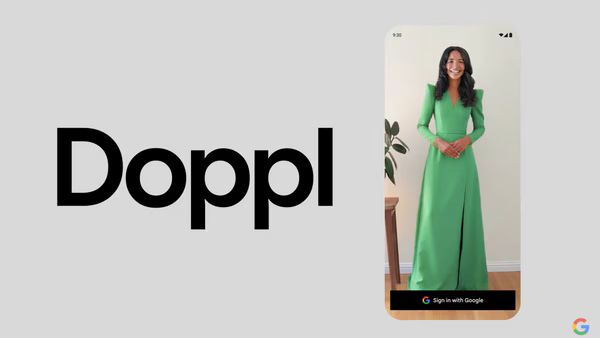Google Launches “Doppl” – An AI-Powered Virtual Try-On App

In News: Google Launches “Doppl” – An AI-Powered Virtual Try-On App
Date: June 26, 2025
Launched by: Google (under Google Labs)
Platform: Experimental AI-based consumer application
Context
Tech giant Google has launched “Doppl”, an AI-powered clothing try-on app that allows users to digitally change outfits and visualize how clothes look on them — without visiting a store or physical fitting room.
This represents a major leap in AI-driven fashion technology, combining computer vision, generative AI, and virtual modeling.
About Doppl
Developer: Google Labs (R&D & experimental innovation wing of Google)
Nature: AI-based Virtual Dressing & Fashion Visualization App
Key Features
- 👕 AI-Powered Virtual Try-On:
- Users can upload their photo to digitally try clothes using AI-generated outfits.
- 🧍 Animated Outfit Visualization:
- Converts static images into AI-animated visuals to show how clothes move in real life.
- 🛍️ Shopping Integration:
- Linked to Google Shopping, allowing users to browse and virtually try apparel before purchase.
- 🔬 Advanced AI Modelling:
- Uses generative adversarial networks (GANs) and pose estimation for realistic dressing simulations.
- 🌈 User Customization:
- Supports different body types, styles, and textures for personalized outfit previews.
- 🔒 Privacy Focus:
- Operates under Google’s Responsible AI and Data Ethics framework to ensure safe user image handling.
Objectives
- Enhance digital shopping experience.
- Integrate AI personalization into e-commerce.
- Reduce product returns through better fit visualization.
- Bridge the gap between fashion and technology innovation.
Tech Significance
- Builds on Google’s earlier “Virtual Try-On” feature for Google Shopping.
- Represents a new trend in AI x FashionTech integration.
- Marks Google’s expansion into immersive retail and AI-based consumer applications.
Wider Impact
- May transform online retail, reducing dependence on physical stores.
- Encourages AI-driven creativity in fashion and design.
- Raises questions on data privacy, AI ethics, and digital body representation.
- Opens new employment areas in AI fashion modelling, e-commerce UX, and digital styling.
Updated - 27 Jun 2025, 03:10 PM | Mint
Google Doppl AI Dresser App Google Labs Virtual Try-On Generative AI Fashion Technology AI Clothing Simulation Google Shopping Artificial Intelligence Digital Fashion Computer Vision GANs Virtual Dressing Room E-Commerce Innovation Retail Technology Digital Shopping Experience FashionTech AI Personalization Data Privacy Responsible AI Emerging Technologies Consumer Tech UPSC Current Affairs UPSC Prelims 2025 GS Paper 3